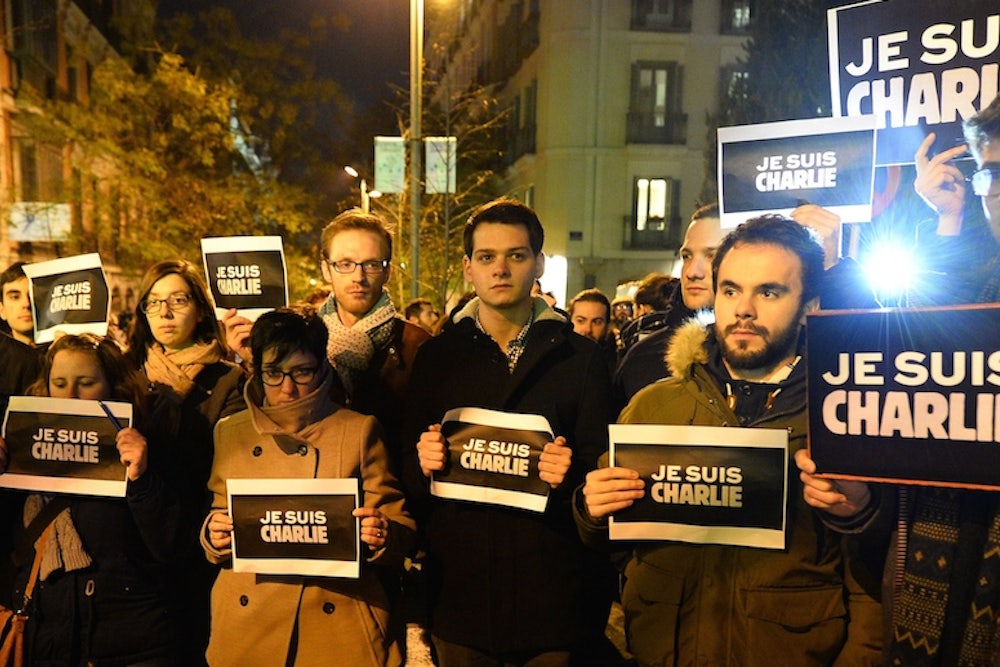In the aftermath of Wednesday’s terrorist attack, which killed twelve people, the editors of Charlie Hebdo have been celebrated for their courage to continue satirizing radical Islam in the face of previous threats and violence. (Their offices were firebombed in 2011 after they named the Prophet Muhammed “editor-in-chief” of an issue.) But while the editors of Charlie Hebdo loved to skewer Islam, the target of their most recent issue was a prominent author accused of Islamophobia.
The latest issue of Charlie Hebdo lampoons Michel Houellebecq, author of the controversial new novel Submission. In it, Houellebecq imagines France in 2022, when the leader of the newly created Muslim Fraternity Party defeats Marine Le Pen, leader of far-right National Front, for the presidency. The next day, French women abandon Western dress and leave the workplace en masse. Universities become Islamic, and non-Muslim teachers must choose between early retirement or conversion to Islam. Turkey and North African countries join the EU, which sets out to build an Islamic territory resembling the Roman Empire.
The novel has sparked controversy in France, with many accusing Houellebcq of promoting Islamophobia and extreme right views. Laurent Joffrin, editor-in-chief of newspaper Libération, declared that the novel “will mark the date in history when the ideas of the far-right made a grand return to serious French literature." (For those wondering if Houllebecq is himself satirizing France’s extreme-right, he called Islam “the stupidest of all religions” in 2002 and told The Paris Review last week that his book was not satire.)

Never ones to shy away from a debate, the editors of Charlie Hebdo put Houellebecq, dressed as a wizard with a cigarette in hand, on the cover of their January 7 issue, with the title, “The predictions of wizard Houellebecq.” “In 2015, I’ll lose my teeth. In 2022, I’ll do Ramadan,” the sickly-looking sorcerer says. The predictions continue inside the issue, ridiculing Houellebecq’s visions of the future. “He sniffs the future from the lines of his hand,” one cartoon says, accompanied by an image of the author doing cocaine. Other predictions include, “In 2091, a diarrhea epidemic hits Thailand; 135,000 sex tourists are taken, disappeared, including three French citizens.” Another entry predicts that in the same year that the Islamic State enters Europe, Dominique Strauss-Kahn, France’s former finance minister who was disgraced in a 2011 sex scandal, will join an alien-worshipping cult.
One of the great ironies of the attack was that it occurred on the same day that Submission and the issue of Charlie Hebdo making fun of it hit French bookstores. What happened to Charlie Hebdo was a horrific attack by radical Islamists seeking to silence the publication. But as the conversation moves forward, it’s important to remember that the editors and cartoonists of Charlie Hebdo weren’t just fighting Islamic fundamentalism, but other forms of intolerant and dogmatic thinking as well.
